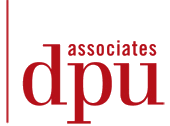
Economic management training for North Korea (Keith Sargent)
Submitted by frankie on Mon, 2007-07-09 20:22.
Keith Sargent
The views expressed in 'Recent News & Reflections' are those of the author and do not necessarily reflect those of any of the governments, organisations or agencies with whom they have been working.
In late May 2006, Keith Sargent was commissioned by the UN Department for Economic and Social Affairs (UN DESA) to advise on the economic management training requirements for government officials and academia in North Korea. This brief note highlights the achievements, frustrations and ultimate demise of an initiative that aimed to address a few of the real development needs of North Korea and transcend the rhetoric of the Six Party Talks.
North and South Korea have been divided by a demilitarised zone since the end of the Korean War in 1953. Whilst South Korea (the Republic of Korea) may now be seen to have prospered since the war to become what is popularly known as the Fourth Asian Tiger (with Japan, China and India), the fortunes of its northern neighbour contrast somewhat dramatically. Immediately after the War Kim Il Song, presided over a period of relatively strong economic growth whilst South Korea remained in deep poverty for more than a decade. Relative fortunes began to change in the early 1960s, however. The South experienced a change of leadership in 1962, normalised relations with Japan in 1965 and embarked on rapid industrialisation under a series of ambitious five year plans, exploiting renewed trade links with Japan. The North meanwhile focused on the development of its military industry and its old style state owned industry policy could not sustain the economic growth needed to allow it to compete with its flourishing neighbours. Significant flooding in the early 1990s, followed by major famine peaking in 1997 brought hundreds of thousands of deaths and the country to a position of great dependency upon outside help. The Government’s re-building of Pyongyang (frequently described as the ‘show case city’) and its pursuit of nuclear power for what is seen as military purposes have both been subject to major international criticism and condemnation.
In recognition of the need for sustainable economic development in North Korea, the UN’s Country Programme for 2005-06 enabled the commissioning of a consultancy to prepare three projects in Economic Management Training which focused on institutional capacity building for, respectively:- the State Planning Commission (SPC) and the Central Bureau of Statistics (CBS),
- the Ministry of Finance (MoF) and the Foreign Trade Bank (FTB), and
- Kim Il Sung University and the Pyongyang University of Foreign Studies (PUFS).
Whilst accepting the broad thrust of the training projects proposed, the UNDP in Pyongyang and the DPR Korea Government considered it necessary to take a more coordinated approach to capacity building and that the training programme as a whole would “have to be informed by a clear understanding of the approach to economic management and appropriate institutional model preferred by DPR Korea”. As a consequence, UN DESA was requested by the DPR Korea Government and UNDP to mount a two person Scoping Mission to advise on such an approach.
Our Scoping Mission had two key objectives to:- “sharpen the project outputs and activities and to put in place the institutional / administrative arrangements necessary for implementation ….”, and
- “review the scope of the projects and determine whether longer term institutional capacity building elements should be included in the projects to enable sustainable use of enhanced capacities and skills”.
Our work involved close interaction with all beneficiary organisations, and wide ranging consultation with development partners, including the Russian and Chinese Embassies. Though initially there were no women to represent the beneficiary organisations our expression of concern was immediately and positively responded to. We were not so fortunate when we requested to have sight of present University curricula for economic management training and other relevant materials that would allow us to make base line estimates of existing training provision and future requirements. However, by the end of our two week stay in country we had articulated a draft and relatively integrated medium term (4 year) capacity building programme for the six organisations, with the recognition that the programme would have to be refined as time went by and a better understanding between all parties evolved.
At the request of the DPR Korea Government and with the agreement of UNDP Pyongyang and UN DESA the first phase of the capacity building programme was to provide overseas training and awareness raising courses and study visits for middle and technical level officials, and policy makers. I consequently left Pyongyang with an agreement that I should take responsibility for the first stage of programme implementation. Regrettably this did not happen immediately since the end of the Scoping Mission coincided with North Korea’s test firing of rockets followed by underground nuclear tests. However, by September 2006, I was again contracted by UN DESA.
My Terms of Reference included but were not confined to:- the identification of suitable potential academic institutions to provide economic management training,
- the articulation of Terms of Reference for potential training institutions, and
- obtaining full / detailed technical and financial training proposals.
Given that at the time of our Scoping Mission we were not enabled to undertake any individual assessments of training need (TNAs) my broad mission was to present a range of training proposals in the field of economic management from which the beneficiary organisations could select the most appropriate; such proposals having first gone through the conventional technical and financial procurement appraisal processes.
The fact that there were six institutions, with very different needs meant that the range of training proposals sought was very broad, covering such topics as: economic planning strategy and policy, banking and bank risk management, foreign trade, debt management, enterprise management, national accounting, statistical and econometric methods, context based English language training, and many other areas besides. This in turn meant that I had to have a very substantive dialogue with each training institution that I approached to solicit a bid, before even issuing Terms of Reference (ToR). This was particularly so that their capacity in topic areas could be clarified and an agreement in-principle could be reached on the broad areas of their potential submission. This it has to be admitted is certainly neither the conventional nor optimal way of going about the provision of training but in this case, it was the only way.
The selection of training institutions was facilitated greatly by all the published material that is now on the Web. Ultimately, centres of excellence were selected from Asia and the Pacific, Europe (East and West) and the UK and Ireland. The response to initial approaches was various. A number of training institutions were delighted to be asked and worked assiduously from the outset to provide targeted and innovative proposals; others needed persuading but once persuaded worked similarly; and yet others could not be persuaded, largely because their Boards of Governors and / or their national government would not permit. Whatever, all collaborating institutions cautiously viewed the evolving ‘North Korean situation’ and the Six Party Talks.
By the end of 2006 a full range of proposals for both study visits and courses had been received. They were all of a high standard, and a number were both exciting and innovative. They were submitted to the relevant authorities in New York and North Korea, and my contractual obligations to UN DESA were fulfilled. However, it rapidly became clear that the authorities in North Korea required some further assistance, not least the opportunity to gain first-hand answers to questions about the proposed training and training institutions. There was also the issue of candidate pre-assessment to be resolved to the satisfaction of potential training providers. As a consequence, discussions were opened with UNDP Pyongyang about a follow-up visit, which was confirmed by mid January. However, just as I was about to leave I received notification that the UNDP Executive Board in New York had decided that economic assistance under the new Country Programme, 2007-09, for North Korea was not to go ahead, and I was advised to drop my travel plans.
Difficulties in making headway in the Six Party talks and subsequent claims that North Korea had misused UN funds were talked of. Bidder’s reactions were largely predictable: understanding yet dismayed at the largely wasted effort. The UNDP Office in Pyongyang was closed and will remain so for the foreseeable future. The major needs for North Korea’s economic development and lifting a large proportion of its people out of extreme poverty continue go unmet.
